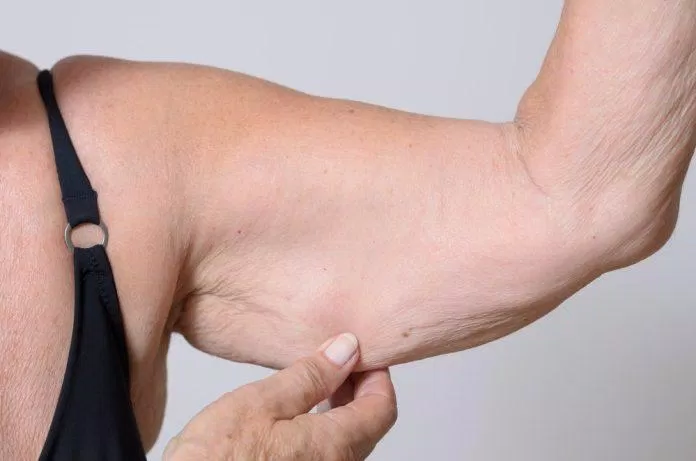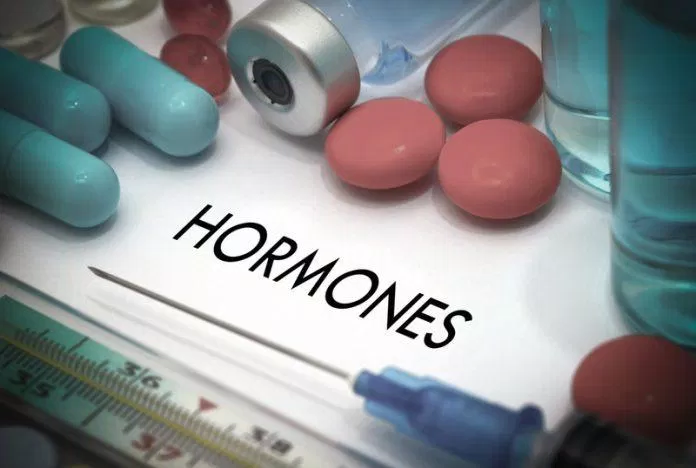Weight gain over time is a problem for everyone, not just you, except for some people with weak food absorption status who do not gain weight.
But do you realize that as you get older, even though you have followed the diets that help your body lose weight, it is almost impossible?
It must be said that there are many reasons why it is difficult for you to lose weight, from diet and exercise to daily living habits.

But for the elderly, it is more difficult to regain a slim figure because many changes occur inside the body. So how to maintain a healthy weight and beautiful body as you age? Is it easier to gain weight as you get older? How to lose weight better? Let's find out with Bellyfatzone!
Weight gain as you get older: Why?
Many people easily maintain a slim and fit body when they are young but suddenly gain weight at some point, and it isn't easy to regain the same shape as before. This phenomenon is not unusual because many body functions change as we age.
According to the American Agency for Healthcare Research and Quality, our bodies usually gain about 0.5 to 1 kg per year as we age. In the short term, it may not seem like much, but over time it will cause significant weight gain and, in some cases, even lead to obesity. Statistics show that obesity rates start to increase from the age of 40 and peak between the ages of 40 and 59, then decrease slightly after the age of 60.

However, not everyone experiences weight gain as they age because many factors influence weight, such as genetics, physical activity, and diet. But in general, everyone finds it harder to keep weight and lose it as they get older.
The cause of this problem is that our muscles, hormones, metabolism, and other organs start to change as we age. There are five main factors thought to influence weight in people with age:
Slower body metabolism
Age-related loss of muscle mass slows down the body's metabolism, which is the complex process that converts food into energy and building materials. Increasing fat and losing muscle reduces energy to burn. Many people reduce their physical activity as they age due to lifestyle or disease, further slowing metabolism.
However, age is not the only factor that affects metabolism but also depends on gender and body weight, as well as health problems that often appear more with age, such as depression, thyroid, or Cushing's syndrome.
Due to muscle loss
The amount of muscle in our bodies begins to decrease after the age of 30 at a rate of about 3 to 8 percent every 10 years, according to the National Institutes of Health (NIH).

Muscle loss occurs more rapidly in people who are physically sedentary, have age-related health problems such as arthritis, or have had trauma or surgery that requires prolonged immobilization. When these factors combine, more and more muscle atrophy occurs.
What effect does muscle loss have on weight? Muscle burns more calories than fat, even at rest, without exercise. Therefore, if the amount of muscle is reduced, the body's calorie needs also decrease, but the calories from food intake remain the same, causing excess calories and, fat gain, and weight gain.
The reality is that most people don't change their diet as they age, but because muscles have lost weight and are less active, excess calories contribute to weight gain.
Normal hormonal changes due to age
According to the US National Center for Health Statistics, men and women experience changes in hormone levels as they enter middle age, leading to weight gain.
For women, menopause usually occurs between the ages of 45 and 55, causing a significant drop in the hormone estrogen, leading to increased belly fat. Not only does this lead to considerable weight gain and increases the risk of several chronic diseases such as high blood pressure, heart disease, hypercholesterolemia, and type 2 diabetes.

In addition, changes in estrogen levels during perimenopause (several years before menopause actually) can cause mood swings and affect eating. Exercise habits, as well, are important factors for weight gain. According to UC San Diego Health, the average weight gain during menopause is about 2.3 kg.
For men, a significant drop in testosterone levels begins around the age of 40, and the rate of decline is about 1 to 2 percent per year, according to Harvard Health. Testosterone is important for many bodily functions, including regulating fat storage and increasing muscle mass and strength. Therefore, when testosterone decreases, the body burns fewer calories, leading to weight gain.
As the body enters middle age, the pituitary gland in the brain also begins to decrease the production of growth hormone (GH). One of the functions of GH is to build muscle and maintain muscle mass, so when the amount of GH decreases, it will make it difficult for muscles to maintain and grow, thereby reducing the body's calorie expenditure.
These factors continuously increase over time, causing the body to store more and more fat, lose muscle mass, and burn fewer calories.
Busy lifestyle
Entering middle age is also a time when jobs and careers are high, and families and children have many things to worry about, which also affects health issues such as weight. People are often less active when they are busy with work and do not have time to exercise regularly, so gaining weight is normal.
In addition, the busy lifestyle also makes us less interested in healthy food, but only eat high-calorie dishes quickly to save time.
Another important factor is that work-related stress can also affect weight because the stress hormone cortisol can increase the hunger hormone ghrelin, making us crave more food.
How to lose weight more easily as you get older?
Reduce stress
Overeating due to stress is a common phenomenon for many people and also contributes to uncontrolled weight gain. So apply relaxation methods to reduce stress, such as meditation, yoga, or a gentle walk outdoors.
Choose healthy food
Nutritionists recommend eating more vegetables and fruits and cutting down on unhealthy foods like fast food, processed foods, and foods high in sugar.
Choose whole, unprocessed foods like vegetables, beans, nuts, whole grains, and fresh fruit. They contain a lot of fiber but are low in calories, so they help the body fill up quickly and avoid eating more calories than needed.
Reduce daily food intake
As the body's need for calories decreases with age, we should also reduce the number of calories in our daily diet. Experts recommend that you start by reducing slowly, about 100 to 200 calories per day, and then reduce more if necessary. You can use calorie-counting apps to keep track of your daily food intake.
Drink enough water

Feelings of hunger and cravings are sometimes caused by a lack of water in the body. Drinking enough water not only helps control hunger but also boosts metabolism and increases fat burning, according to a review published in the June 2016 issue of Frontiers in Nutrition. But be careful not to use drinks that contain a lot of sugar and calories, like soft drinks.
Muscle training and regular movement
With that said, muscle loss is a major cause of weight gain as we age. You can combat muscle loss by maintaining an exercise routine that strengthens muscle groups. Maintaining muscle mass will burn calories more efficiently and help keep the body healthy and resilient during daily activities.
No need to do exercises that are too heavy or prolonged; just doing light exercise for about half an hour a day with activities that increase your heart rate moderately, such as walking, jogging, cycling or swimming, is also very good for losing weight and keeping healthy muscle. You can even break up your workout time into several times a day, such as walking 3 times, 10 minutes each time. Splitting up still has the same health benefits as a long workout.
Sleep well

If you feel sluggish when you wake up, you also don't have the mood and energy to exercise, resulting in less calorie burn and easier weight gain. Therefore, try to maintain a regular bedtime routine and sleep well every night for about 7 to 9 hours, helping you to wake up energized the next day.
The above is why our body is prone to weight gain as we age and simple ways to maintain a healthy, reasonable weight. Follow Bellyfatzone to update much useful information!






